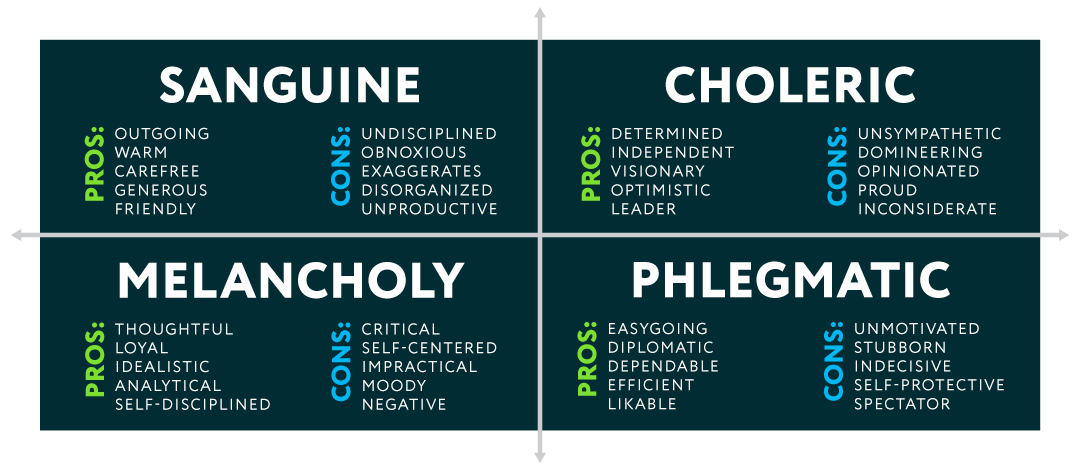Resources
If you've completed the temperament test, take a few minutes to consider how to process this information.
- Understand that all temperaments have strengths and weaknesses. In the past, scholars have wrongly attempted to elevate one over the others. That is wrong. Don’t envy others or wish away who you are.
- Prayerfully consider your results. Thank God for wiring you how he did. Let him know that you want to work on strengths and weaknesses under grace, through the power of the Holy Spirit.
- Discuss results with a close friend or two. How have people close to you seen your temperament at work, for good and for bad? Have they seen any growth in key areas? When analyzing who we are, an outside perspective goes a long way.
- Start studying. Deeper learning will enrich your understanding of yourself and others. You’ll understand more about how people make decisions and react to life’s most common situations.
Illustrations like the one below help you understand the strengths and weaknesses of each temperament, as well as how they relate to each other. Take some time to recognize characteristics (good and bad!) in yourself and others.

Once you understand the fundamentals, further reading is a must. We can’t stress enough the value in going through the resources below. They’ll help you understand each temperament and apply your knowledge with grace. The goal is to allow God to refine our temperament as we become more like Jesus.
- Temperament and the Christian Faith
Ole Hallesby
A Christian classic with some of the most discerning insight on each temperament - Spirit-Controlled Temperament
Tim Lahaye
A quality overview of the temperaments, their strengths and weaknesses and how God can use them - Transformed Temperaments
Tim Lahaye
An analysis of biblical characters who represent the four temperaments: Abraham (phlegmatic), Moses (melancholy), Peter (sanguine) and Paul (choleric)
These titles and others on temperament are available to borrow at the Dwell Study Center.